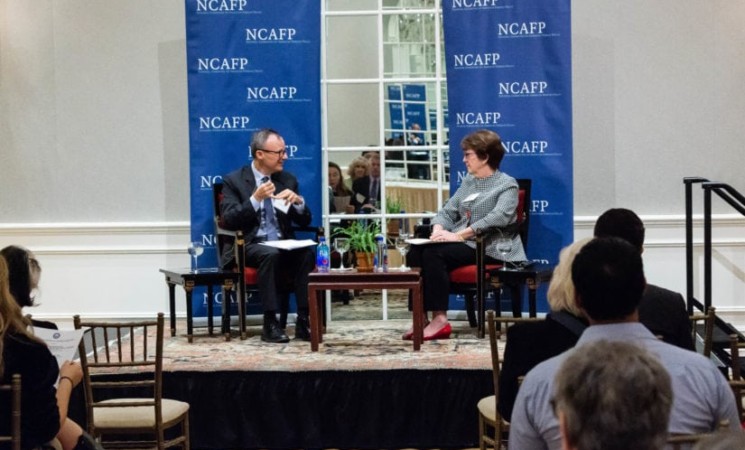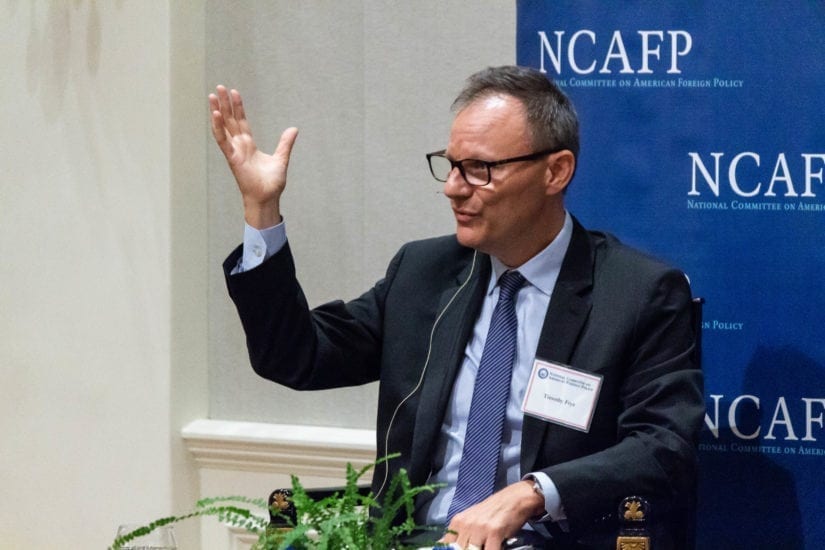The NCAFP hosted Professor Timothy M. Frye on October 27 for a discussion of Putin's Predicament: Politics, Economics and Foreign Policy in Russia. Professor Frye's talk, moderated by NCAFP President Susan Elliott, took a deep dive into the world as seen by Russian president Vladimir Putin. As the title suggests, Professor Frye examined factors influencing Russia's internal decision-making in the fields of politics, economics and foreign affairs.
Professor Frye offered insights into the broad public perception of Putin and the Russian government, highlighting polling data as a key source. Perhaps one of the most critical takeaways was the assessment that there is a challenging political game played by Vladimir Putin at the highest levels of Russian leadership. Although Russia is ostensibly an autocratic state, there is a great deal of importance placed on enhancing Putin's own popularity and balancing the the often-competing interests of oligarchs and other major stakeholders in Russia. It seems that politics, economics and foreign policy all play a key role in achieving the popularity and balance necessary to sustain order.
Questions from the audience were varied and expanded the conversation to the Baltics, energy, and, ultimately, U.S.-Russia relations. Regarding the latter, there was a degree of optimism expressed with relation to areas for future cooperation, even if they are quite limited.
Timothy Frye is the Marshall D. Shulman Professor of Post-Soviet Foreign Policy and Chair of the Department of Political Science. Professor Frye received a B.A. in Russian language and literature from Middlebury College in 1986, an M.I.A. from Columbia's School of International and Public Affairs in 1992, and a Ph.D. from Columbia in 1997.
His research and teaching interests are in comparative politics and political economy with a focus on the former Soviet Union and Eastern Europe. He is the author of Brokers and Bureaucrats: Building Markets in Russia, which won the 2001 Hewett Prize from the American Association for the Advancement of Slavic Studies, and Building States and Markets after Communism: The Perils of Polarized Democracy, which won a Best Book Prize from the APSA Comparative Democratization section in 2010; and Property Rights and Property Wrongs: How Power, Institutions, and Norms Shape Economic Conflict in Russia, which was published in 2017. He has worked as a consultant for the World Bank, the European Bank for Reconstruction and Development, and the U.S. Agency for International Development among others. He is also Director of the International Center for the Study of Institutions and Development at State Research University-Higher Economics School, Moscow.




